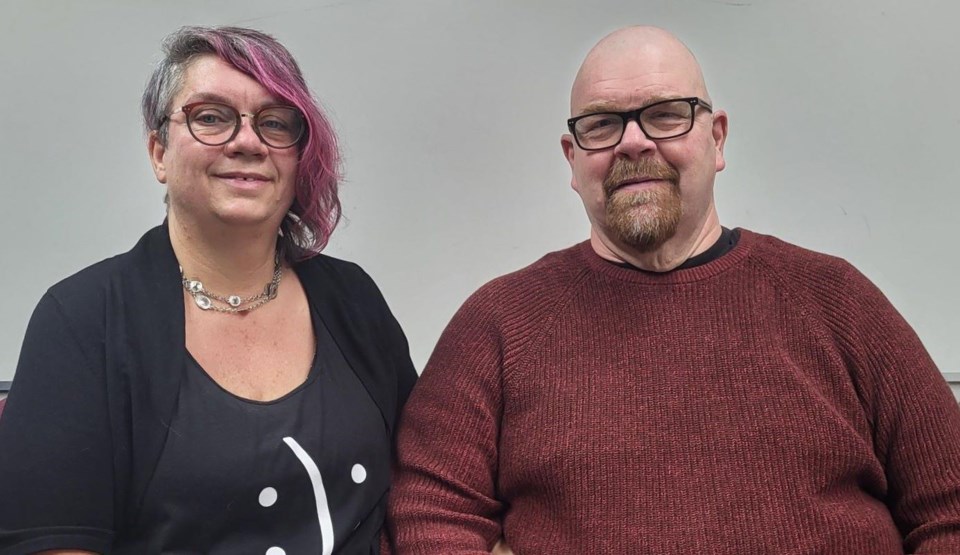He had done the first aid course so many times over the last three decades that he always passed the test with flying colours.
The last time Brian Stanley did the routine test but it didn’t go as expected.
It was the first indicator that Stanley had Alzheimer’s disease.
“I came out of the test and told Penny there was something wrong and in her nursey way she said something like ‘Ya think? What do you want to do about it?”
Penny Jones, Stanley’s partner, a registered psychiatric nurse, had her suspicions earlier than that when Stanley started asking where the light switch on the wall was that had been in the same place for the last 20 years.
It took Stanley another six months before he made the appointment with his doctor because he was finally ready to put a name to it.
Stanley took the MoCA test, a simple, in-office tool that can quickly determine if there is any impairment in a person's cognitive function, including their ability to understand, reason, and remember.
Stanley’s test results prompted a visit to a specialist for more comprehensive testing and in March 2022 it was determined he had early onset Alzheimer’s disease at 56 years old.
Stanley said he’s an old jock and used to wrestle, play lacrosse, and football and admittedly got his bell rung a few times but tests concluded that wasn’t what caused the Alzheimer’s and the disease doesn’t run in the family.
“This has changed our lives dramatically,” Jones said about their close knit family that includes four children and two grandbabies. “This disease shortens your lifespan dramatically and we’re coming up to about two and a half years and life expectancy is between three and 11 years, depending on what stats you look at. So you have no idea how long you have quality, how long he will be present and that’s the hardest part. The first month after diagnosis we sat down together, ate carbs, watched television and cried.”
And then Stanley and Jones got down to the business of living their best lives despite the challenges.
The focus is always on mental and physical health for the couple so Jones and Stanley go to counseling to help ease the stress of Stanley’s diagnosis.
This month Stanley, who retired as an educator after his formal diagnosis, was asked to represent those in Prince George who have Alzheimer’s and dementia during Alzheimer’s Awareness Month that shares the message Live Life to the Fullest.
And Stanley is doing just that.
Now Stanley is a 5km runner, a slow pitch player and is currently training to be part of a team for the multi-event Iceman held in Prince George in February, working towards participating in a triathlon in July.
“Live life to the fullest is Brian’s biggest message,” Jones said.
“That’s right,“ Stanley added. “I might have Alzheimer’s but I still have goals, I still have wants and it’s not always easy but it’s not always bad. I still have my family, I got my kids, my grandkids, and my friends – everybody’s been great and I’m an incredibly lucky guy.”
The Alzheimer Society offers the First Link program where those with any form of dementia and their families can get connected to support, care, knowledge, expertise, and referrals.
With more than half a million Canadians living with dementia today, a number expected to reach almost one million in a decade, the Alzheimer Society is continuing to enhance its support among people living with dementia to meet their needs early in and throughout their journey.
For more information visit



